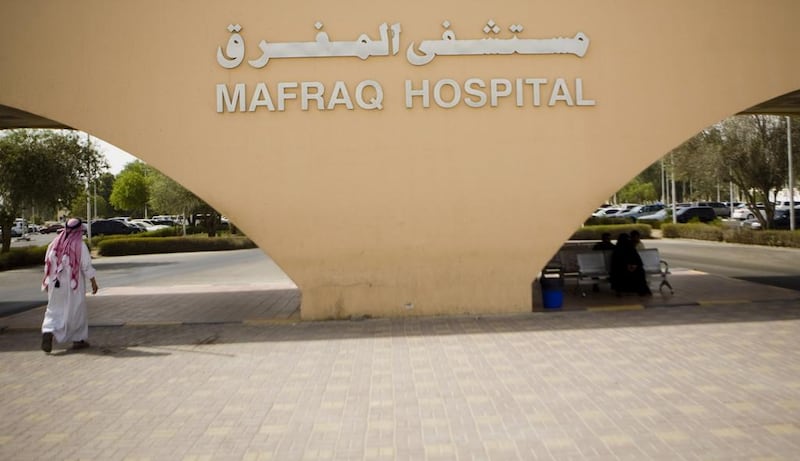ABU DHABI // Patients may be missing out on lifesaving preventive surgery because of a lack of knowledge about stroke symptoms among healthcare providers and the public, doctors say.
Patients who have minor strokes are at risk of a major stroke after about two weeks and may need lifesaving carotid surgery.
Relatively few patients have this surgery in Abu Dhabi, said Dr Mohamed Baguneid, chief of general surgery at Mafraq Hospital.
“We have a massive split between what we’re seeing here and a similar population in the UK,” Dr Baguneid said.
Doctors typically perform fewer than 30 of these operations a year in Abu Dhabi’s public healthcare system, whereas a similar-sized sample of the UK’s population may have 400 operations, he said.
“We would expect more people to have the disease because the population has a higher diabetic group,” Dr Baguneid said.
Factors such as population age, use of other surgical methods and going abroad for treatment do not account for the difference.
“The incidences we would expect to be higher but for some reason [patients] are not presenting to the doctors,” Dr Baguneid said.
He believed cases may not be investigated in the “traditional way”, or patients were not seeking treatment after the symptoms.
“Sometimes the symptoms of a mini stroke are so vague, and they completely disappear within a short amount of time,” he said.
Dr Simon Fraser, a vascular surgeon at Mafraq Hospital, said the size of Abu Dhabi’s population would lead doctors to expect to perform about one operation a week for stroke intervention.
“We have the impression that we’re not seeing as many people as we should be at Mafraq and [Sheikh Khalifa Medical City],” Dr Fraser said. “It suggests to us that people either aren’t aware of the symptoms or they are getting treatment elsewhere.” He thought it was a “combination of both”.
Surgical intervention is crucial because the symptoms “can often lead on to a complete stroke”, Dr Fraser said.
Symptoms of a minor or mini stroke can include slurred speech, weakness in an arm or leg, lack of control of face muscles and temporary blindness, he said.
The UK uses the acronym “Fast” – face, arm, speech, time – to help public awareness about stroke symptoms.
People who are over the age of 40 or who have hypertension, high cholesterol, diabetes or obesity, or who are active or passive smokers, are at an increased risk of stroke, said Dr Ahmed Majid, a stroke physician at Universal Hospital, a private centre.
“Once you are over 40, and particularly if you have the risk factors, that increases your chances,” he said. “You could have had a mini stroke without you noticing it, because it can start from less than a minute to up to 24 hours.”
Dr Majid said the hospital has a vascular surgeon who can perform carotid operations but that it was hoping to establish a cerebrovascular department and to offer patient screenings.
He said the number of intervention surgeries for strokes were probably similar in the private sector because it “doesn’t have the manpower, equipment and technical know-how” to manage them.
These procedures require trained staff, logistical support, advanced radiology and imaging technology and dedicated units, Dr Majid said.
Dr Baguneid is leading an Abu Dhabi Health Services Company vascular symposium on May 5 as part of efforts to reduce vascular mortality rates and raise awareness about cardiovascular diseases and issues such as stroke.
Cardiovascular diseases cause one in five deaths in the country, according to Mafraq Hospital.
lcarroll@thenational.ae





